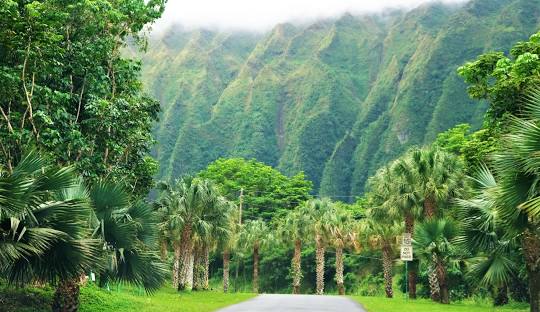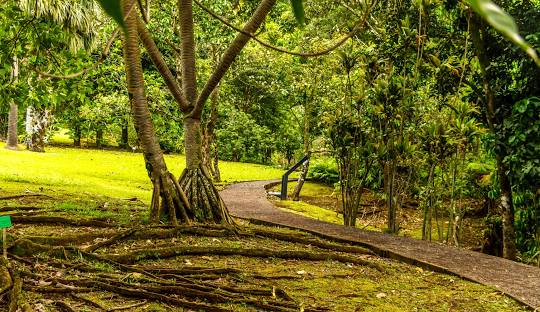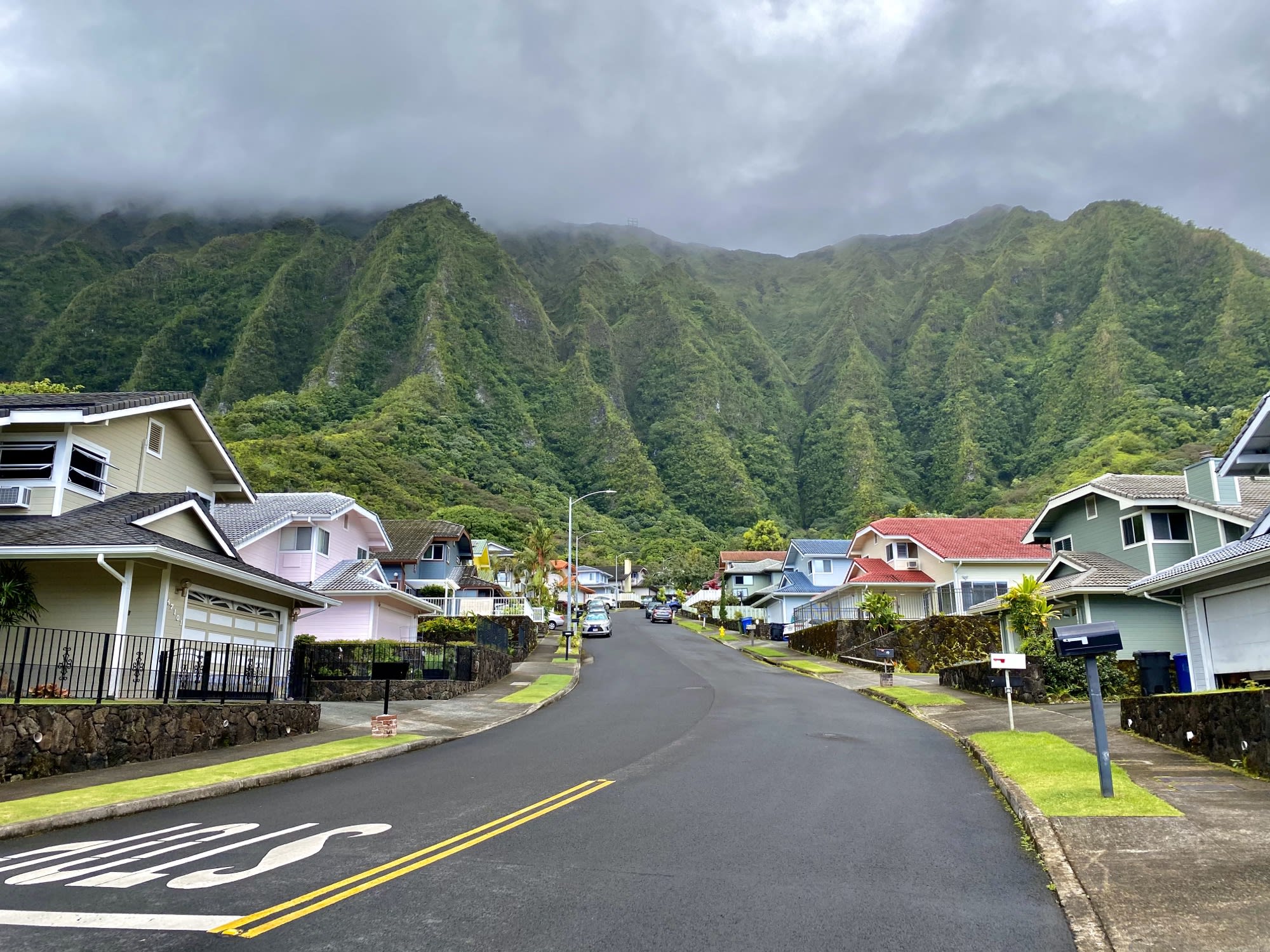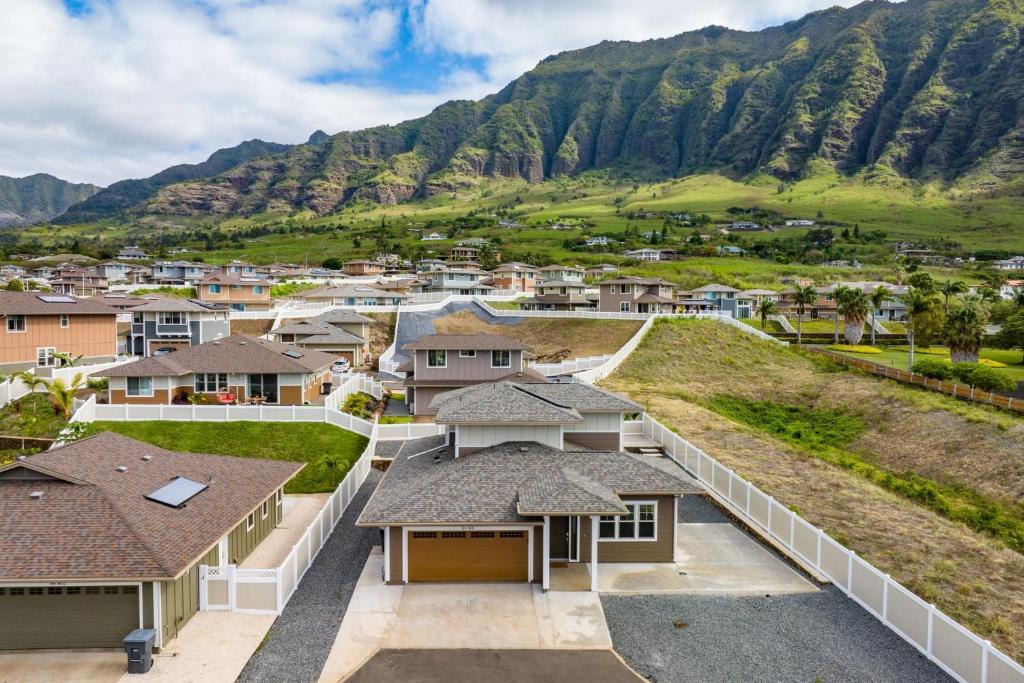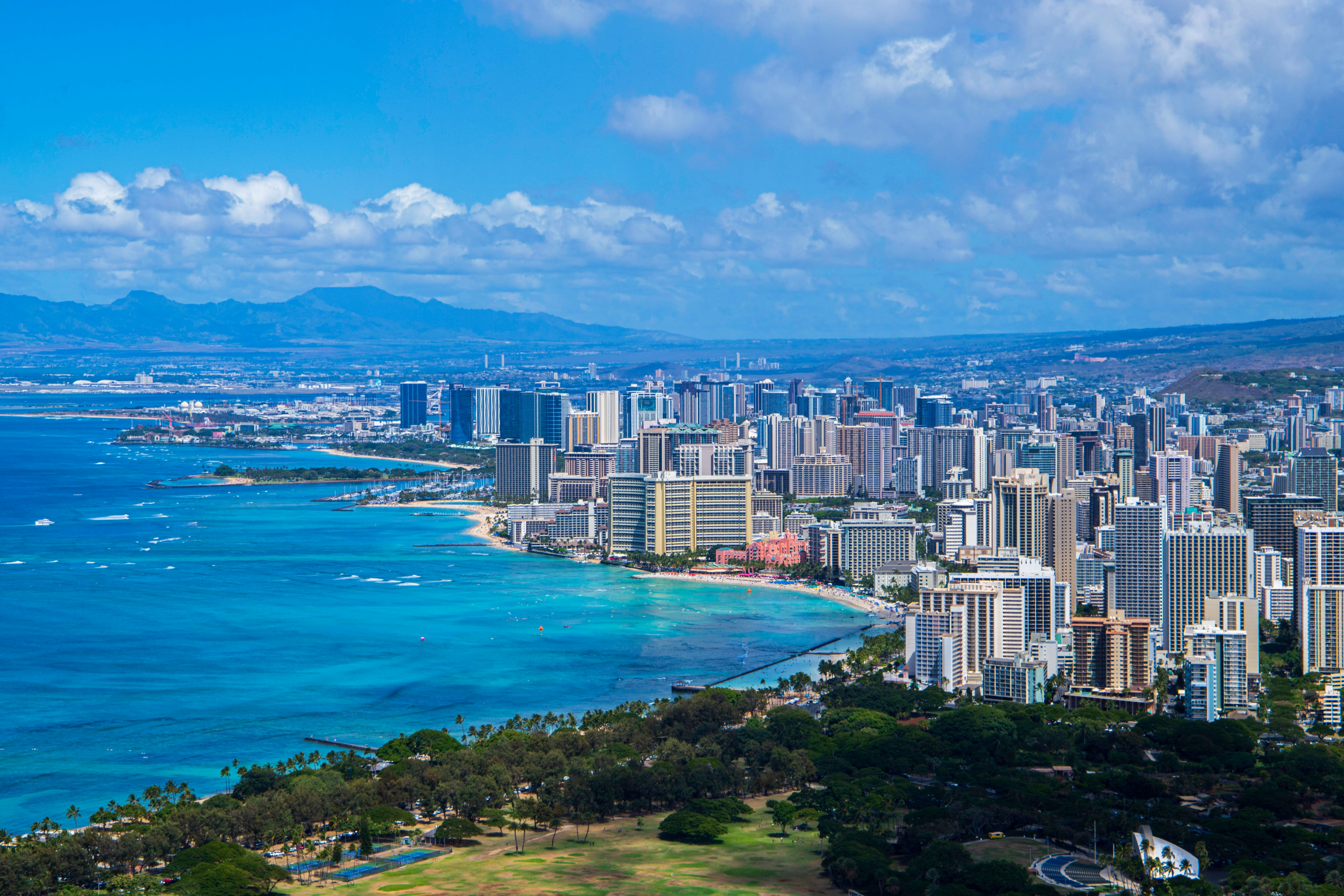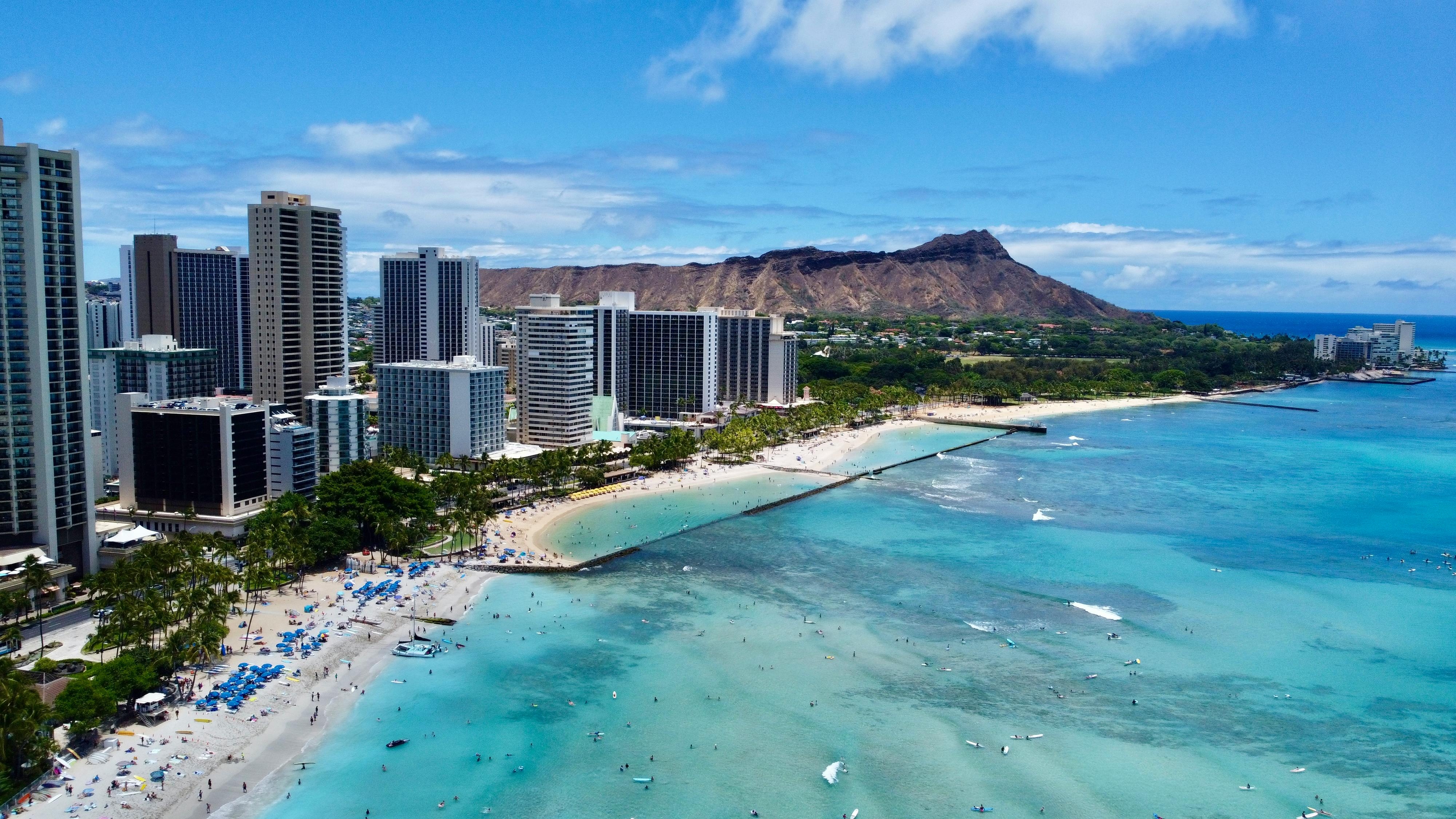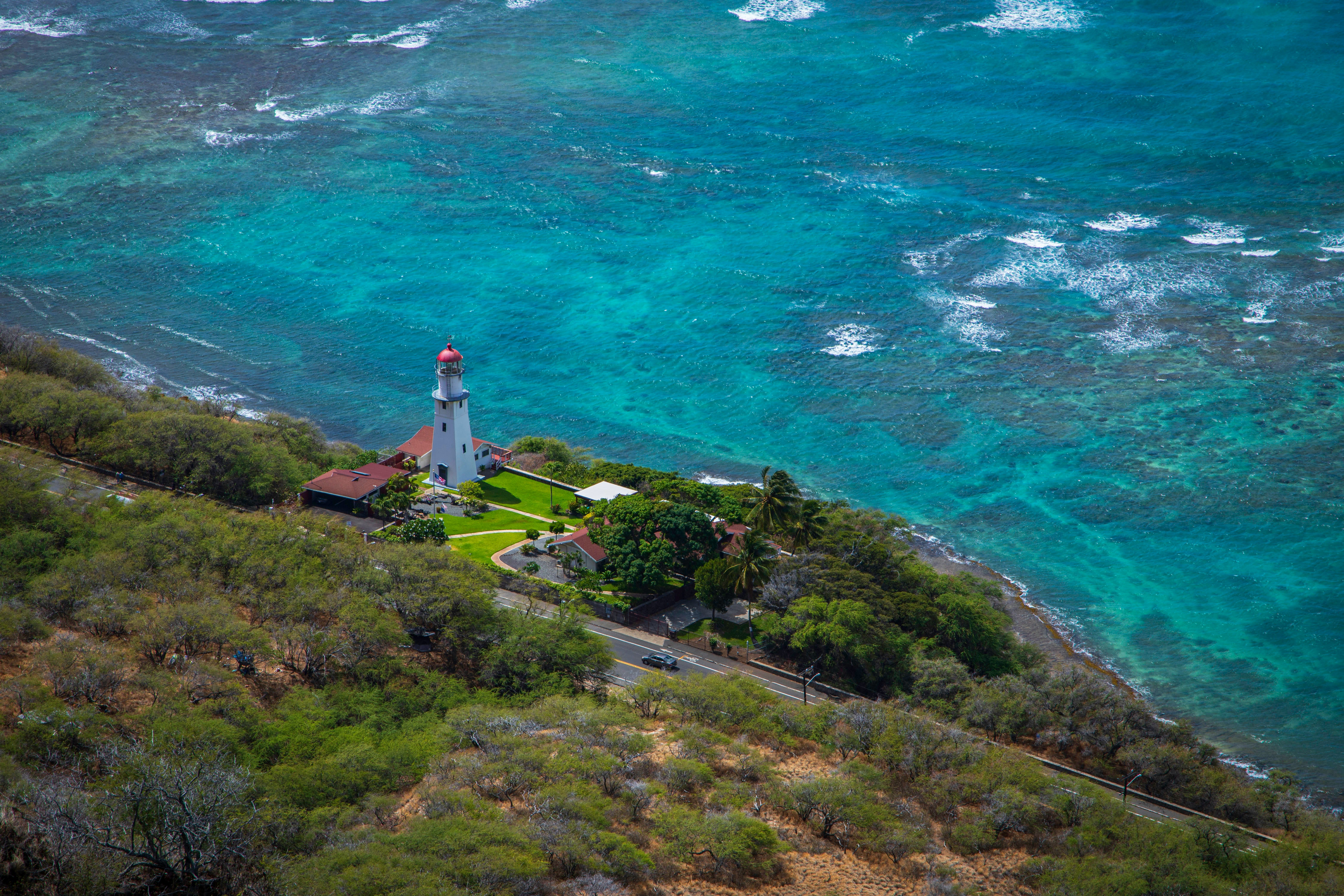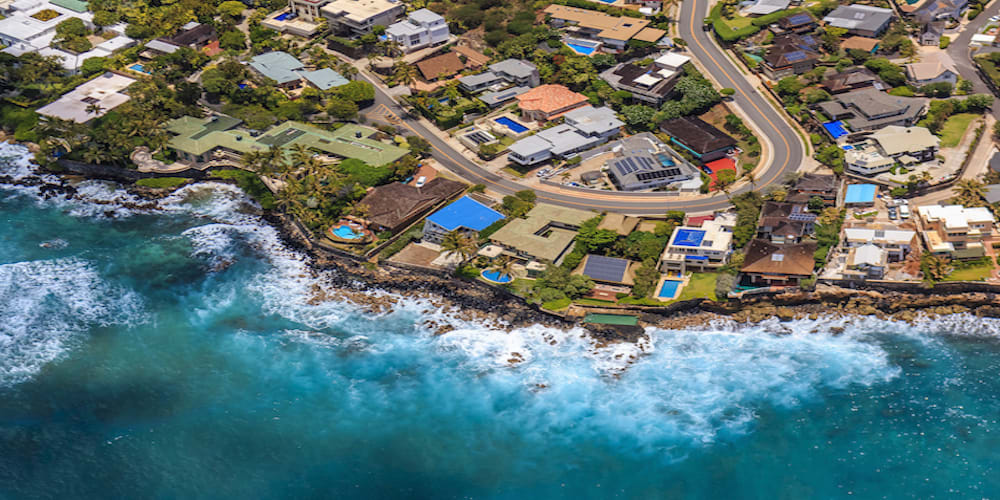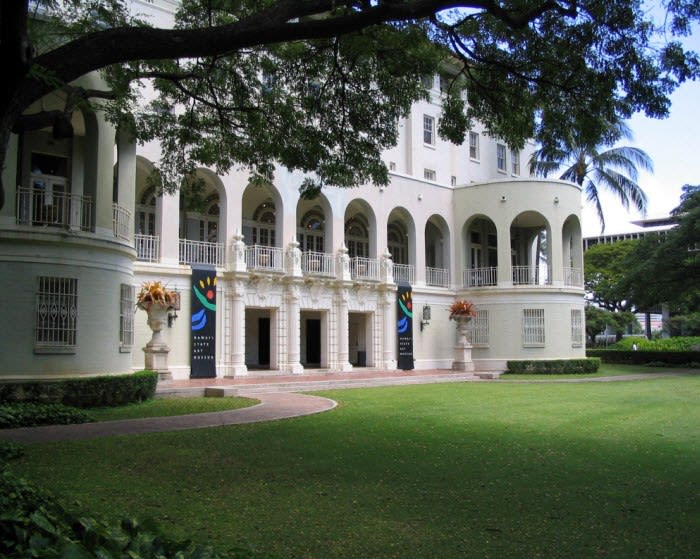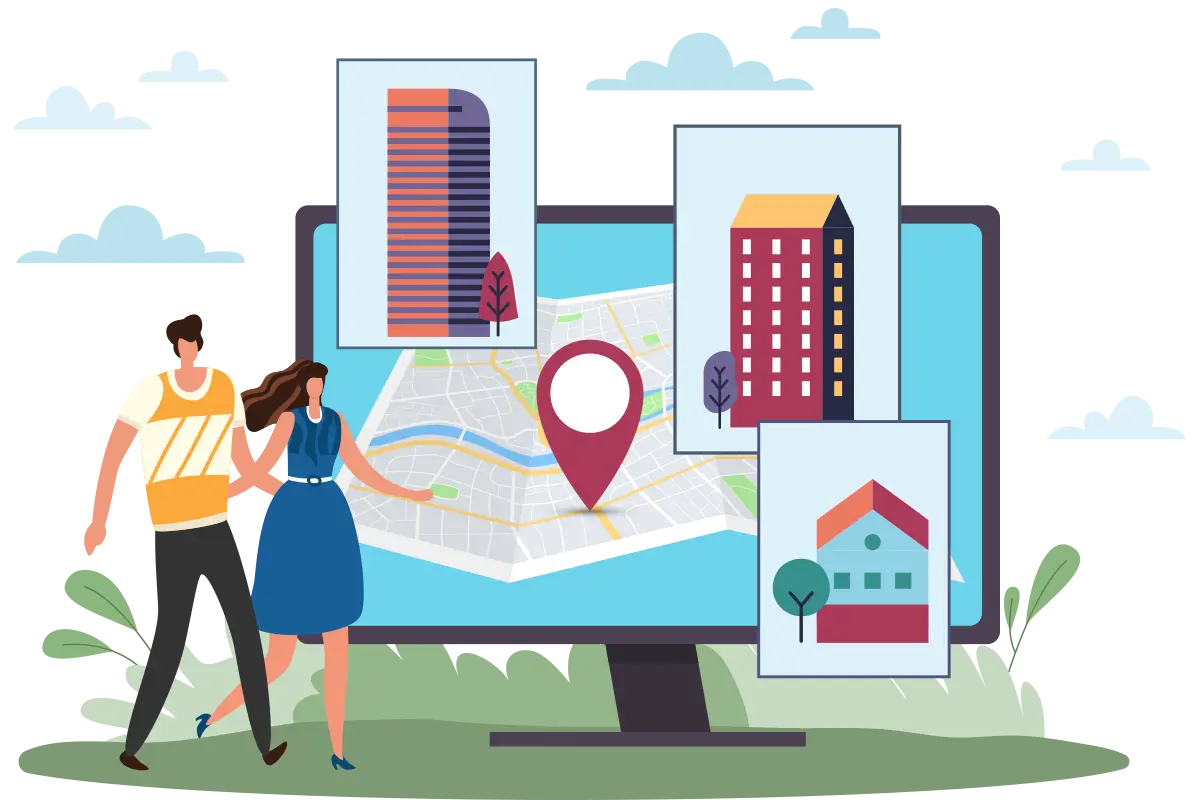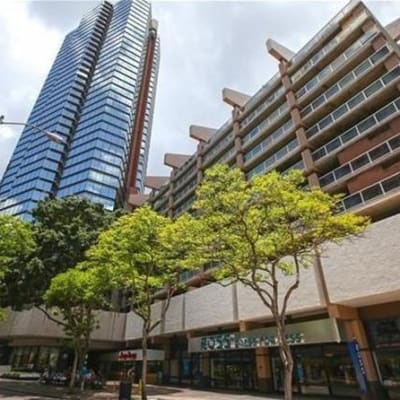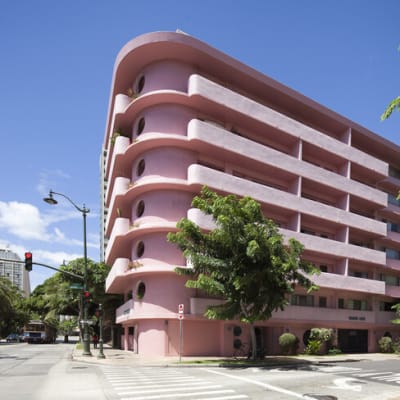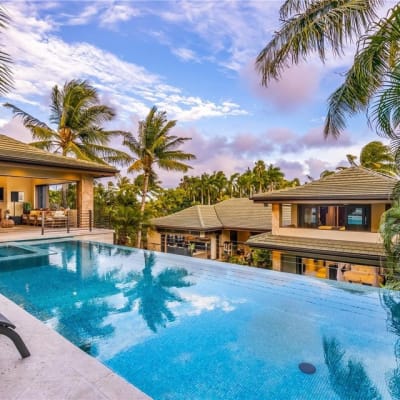Living in Honolulu, Hawaii
The Big Pineapple
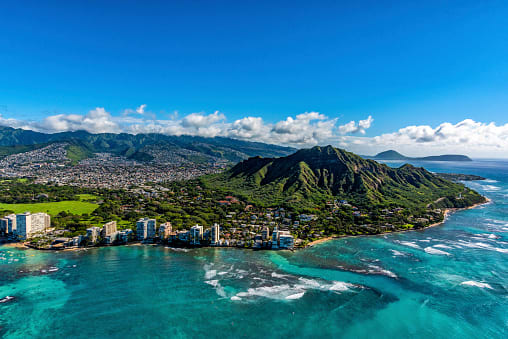
LookyLOO Review of Honolulu
It Never Gets Old
Oahu is home to Honolulu (and Waikiki Beach). When you live on an island, you run into the same people over and over, which makes island life a bit more gentle. Although there is traffic, honking car horns is not a thing. The island has two seasons – summer or the dry season (May to October) and winter, which is the rainy season (November to April). Temperatures are warm year-round with gentle trade winds. 85° in the summer and 75° in the winter is about what you can expect year-round. Nights are not much cooler. It's why Honolulu is featured in the LookyLOO Guide to the Best Beach-Life Cities in the U.S..
Being able to combine the benefits of city living with a beach-y year-round lifestyle is a rare find.
Aggressive Type-As aren’t a great fit for laid-back, easygoing Honolulu, where everything happens at a slower pace. People walk more slowly. Drivers let other cars merge. Speaking of slower, traffic in Honolulu is, officially, second only to Los Angeles. Honolulu has a limited number of roads, but an endless number of cars, and yours will need to be shipped over. Also, living near the water means you’re going to be in traffic going to work unless you're a WFH'er.
Hawaii often finds itself at the top of various healthiest states in America. It’s not surprising given the beautiful weather, easy access to the ocean, and many hiking trails around the islands. People of Hawaii truly love spending time outdoors, and although they do have real lives, they manage to sneak in a pre- or post-work surf or the like. Ocean water temperatures around the state of Hawaii average 82° in the summer and 77° in the winter. That’s much warmer than the ocean waters along the U.S. West coast, including Southern California. Plus, clean air may be a good reason to start considering Honolulu as your new home. Your lungs will love you.
Living in Honolulu, you become accustomed to seeing the ocean everywhere, yet it also never gets old and is a reminder that you’re home is paradise.
Cautionary note: Unless you’re coming from a big, expensive city like New York or San Francisco, the cost of living may astound you. Housing, food, and even the cost of shipping – it’s often called the “paradise tax.” It’s incredibly high -- 82% above the national average.

Lifestyle in Honolulu
Like any big, capital city Honolulu isn’t any one thing in terms of lifestyle but for anyone considering the city from the mainland, it feels crazy not to start with the outdoor activities. Honolulu is filled with stunning beaches, surfing, kayaking, hiking, running, golf, tennis and presumably pickleball. The city is also rich in cultural attractions, with art museums, music, dance, and theater all amazing for a relatively small city.
While much of the culture is built around native traditions, it is important to remember that Honolulu is over 50% Asian American and Pacific Islander with the largest ethnic groups including Japanese, Filipinos, Chinese, Koreans, Native Hawaiian, and Vietnamese so the experiences are often a melting pot of Hawaiian and eastern cultures that make the city feel more international than most other U.S. cities. The food scene is incredible, with all ethnicities represented in world-class dining, and while there are plenty of retirees in the area, the large population of students from the University of Hawaii and young professionals gives the city a younger vibe with tons of bars and clubs available for those looking to stay out late.
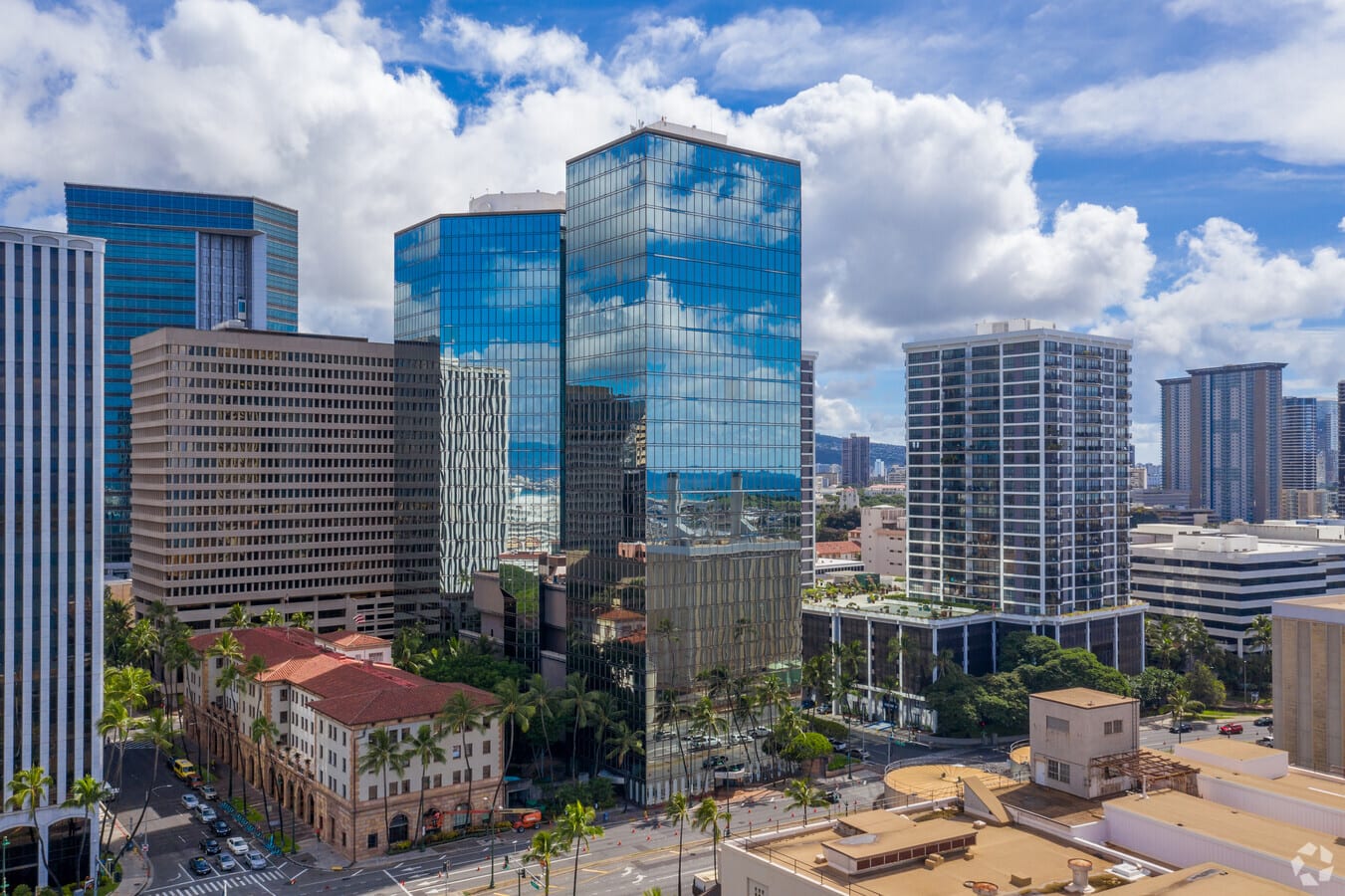
Worklife in Honolulu
Honolulu has four major economic sectors: tourism, trade/transportation, military defense and agriculture/aquaculture. Since the city and islands are at the crossroads of the west and east it serves both tourists and business for both Asia and the United States. While the economy in the city and area is strong and in some sectors recession-proof, the cost of living is crushing for many who otherwise would consider moving here. Some of the wfh migration patterns that are driving growth in less expensive U.S. cities are hard to imagine for Honolulu.
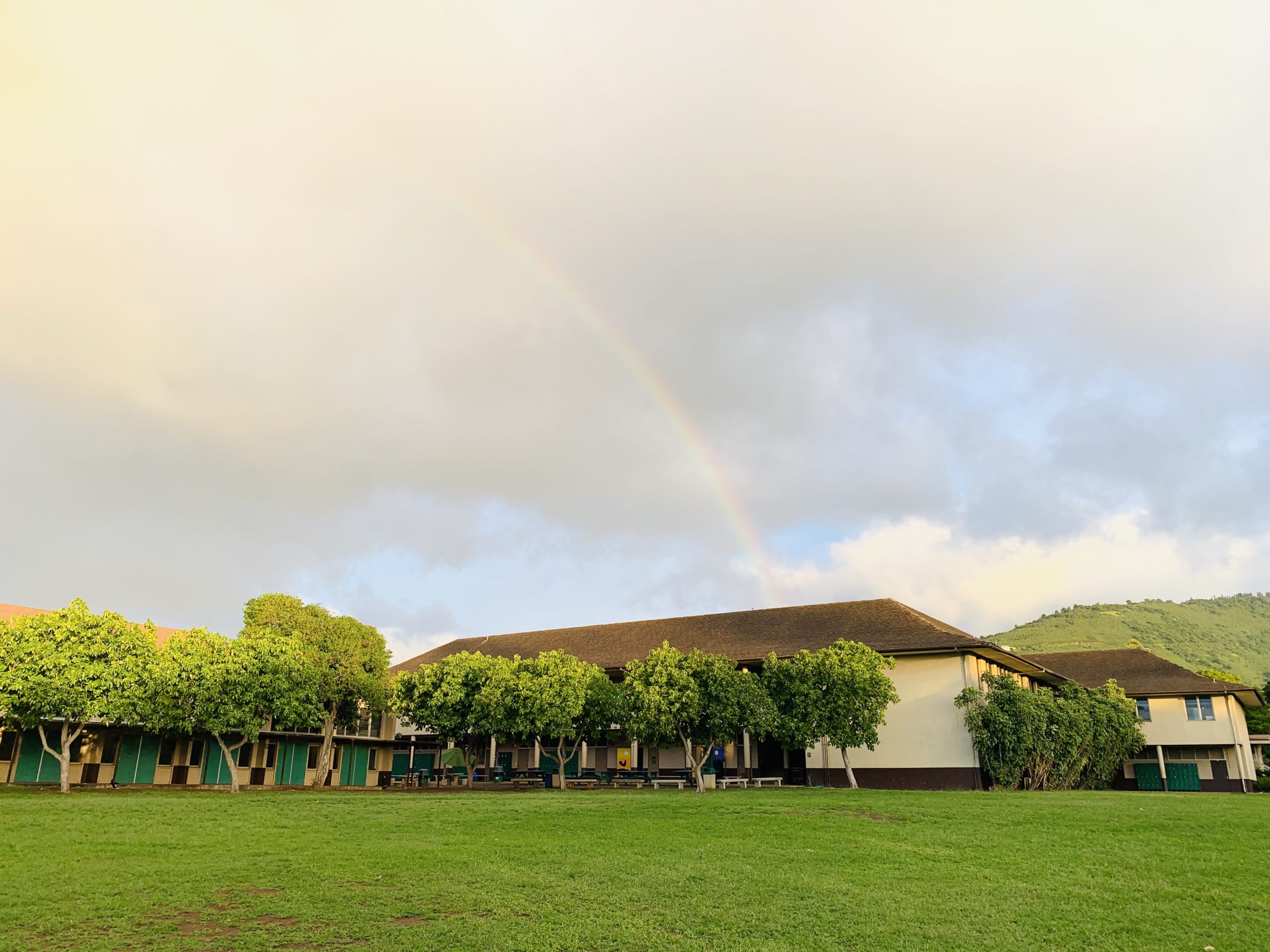
Schools in Honolulu
Honolulu is part of the Hawaii State Department of Education (HIDOE). The entire state receives a "B+" on niche.com.
Hawaii's public school admittance policy generally requires students to attend the school within their designated geographic area based on residential addresses. However, there are options for geographic exceptions, where students can apply to attend a school outside their area if certain criteria are met. More information on enrolling in Hawaii public schools can be found on the HIDOE enrollment page
There are several excellent schools in Honolulu including:
-University Laboratory Public Charter is the #1 rated public school in Hawaii. It receives an "A" on niche.com with very high grades for Academics, Diversity, and College Prep. The school is notable for students earning college credits, a very small student population, college prep, and excellent athletics despite its small size.
-Myron B. Thompson Public Charter receives an "A" on niche.com with particularly high grades for Academics and Teachers. Thompson is a K-12 public charter that has an online/hybrid structure, so students throughout Hawaii have an opportunity to attend.
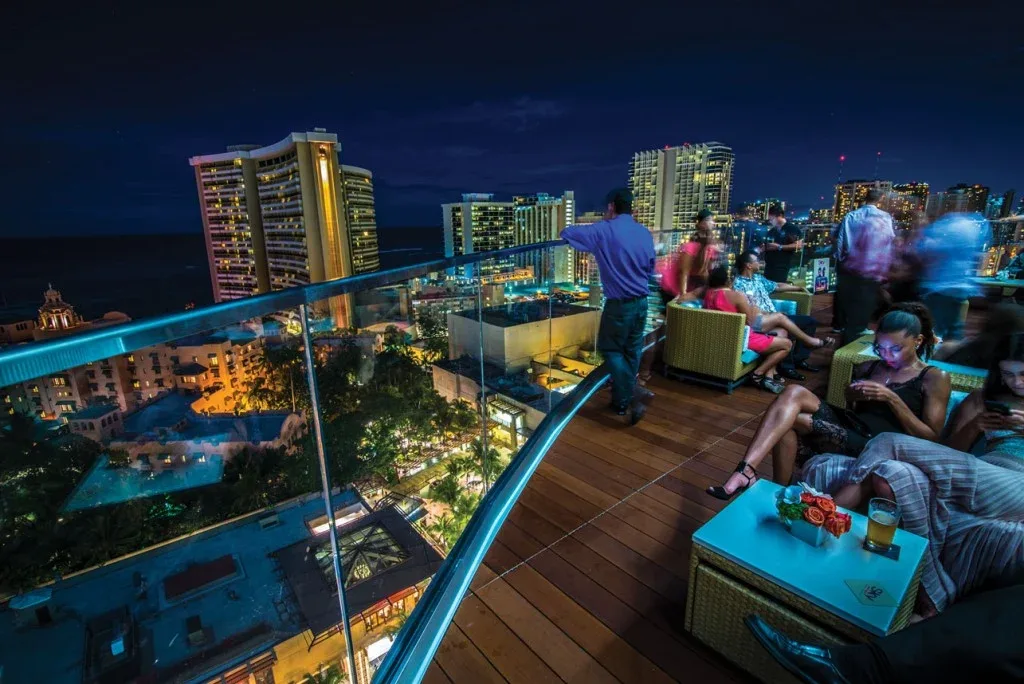
Why You Should Move Here Now?
Livability
Honolulu - particularly East Honolulu - has the highest livability rating in the state, and is number 29 in the nation. This is due to low crime rates, high graduation rates, lots of local amenities, and a stable housing market. It is also No. 13 on a list of the 30 happiest cities in the United States, according to Gallup’s Healthways Well-Being Index.
Honolulu is a rare place that appeals to students, millennial families and retirees. And anyone who loves a good Poke Bowl.
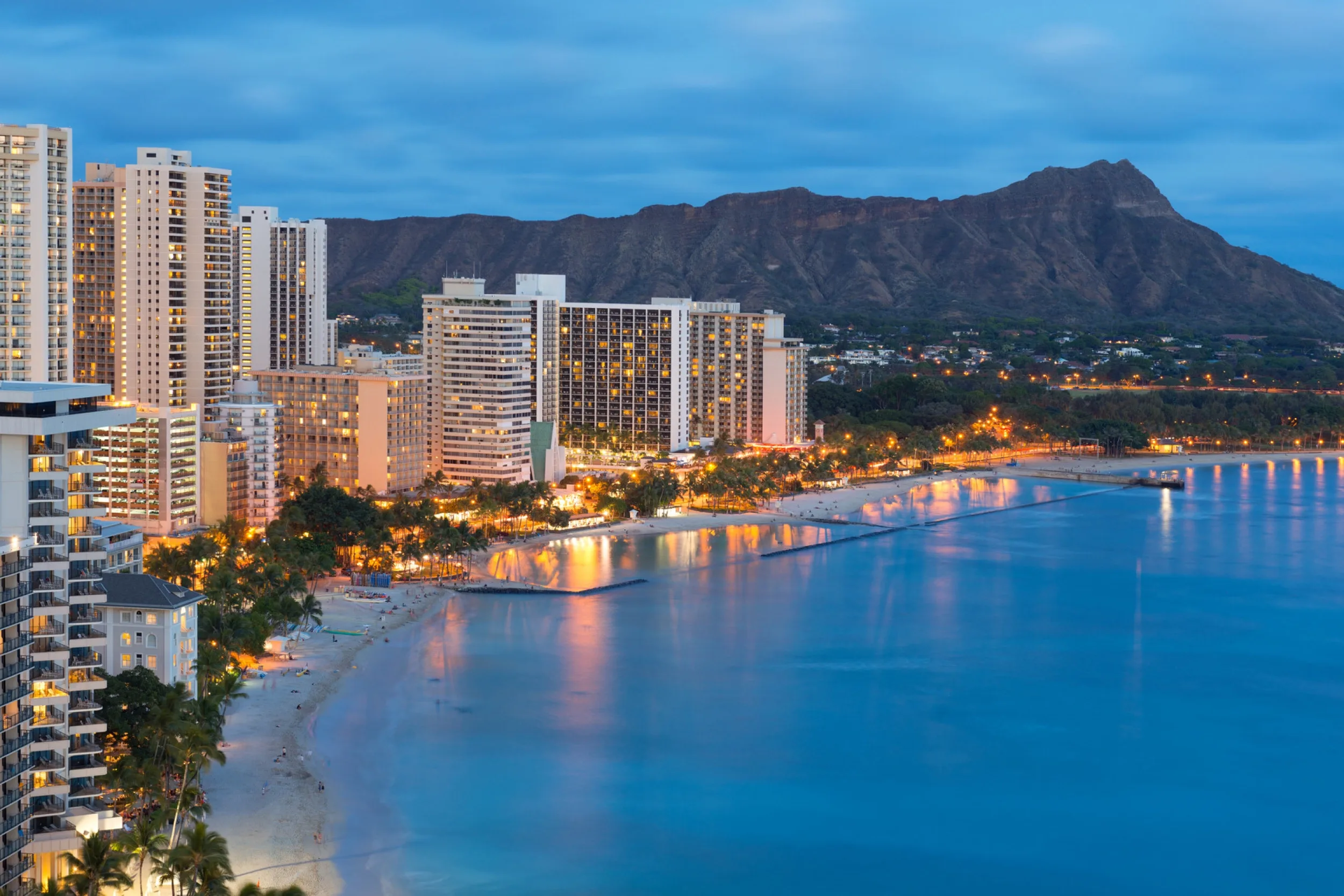
Reviews of Honolulu from Locals
City Meets Beach
Inner_Minute197
Lived in Honolulu
2y ago
🦉🦉🦉
I was stationed on Oahu from 2016-2019 and will be returning for 4 years this October.
How is living on Oahu/in Honolulu? I absolutely love it, which is why I requested orders to return. I love the culture (specifically the less fast-paced lifestyle than what I'm used to in the mainland as well as more people being overtly polite), the food, the vibe, and the weather. That said, I did have a brief stint of island fever about a year after living there my first go around. But this was overcome after I started to come back from deployments and made friends/started to expand my reach.
One thing that I highly recommend in order to help limit the chance that you get island fever is to treat the island as your home and not as some 24/7 tropical Disney location. I've long said that people who claim that "there's nothing to do" or that they run out of things to do in Hawaii have generally (in my experience) come to unrealistically view the islands as a tropical vacation setting instead of as their home. They complain about not being able to road trip on a whim or about the difficultly of traveling to certain far away places, when most of the folks I know wouldn't even be doing that stuff on the mainland. People in Hawaii do the same things as others on the mainland for the most part. Folks go to work, shop, go to the gym, hang with friends, etc. The sooner people start treating Hawaii like any other place--just with "better" weather and wonderful beaches--the sooner they'll get over this notion of there being "nothing to do" or running out of things to do. That's not to say that Hawaii/Honolulu isn't without it's problems, but what place is?
For more reviews of what living in Honolulu is like from locals check out: The Reviews.
Agents in Honolulu
Want to give Honolulu a shot?
Use our friends at VRBO and Expedia to help get you going!

Living in Honolulu
Neighborhoods in Honolulu
View All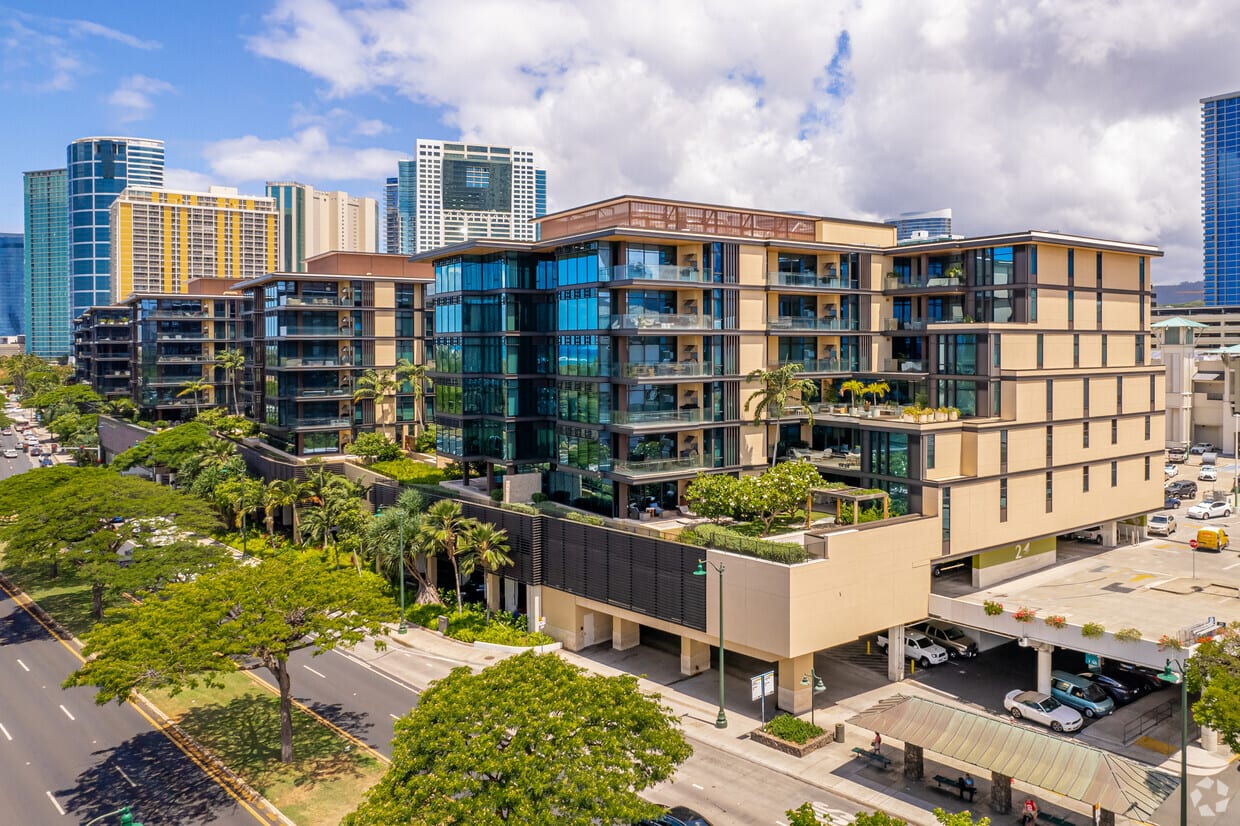
Manoa
College Students
Manoa is where the main campus of the UofH is located. Tons of apartments, cafes, cars and restaurants make it and nearby Makiki the centers of off-campus living. While nothing is cheap in Honolulu these neighborhoods have the best options for rentals. Also consider Kahala/DiamondHead although options in this fancier neighborhood are harder to come by.
- Manoa
- Makiki
- Kahala/Diamond Head
